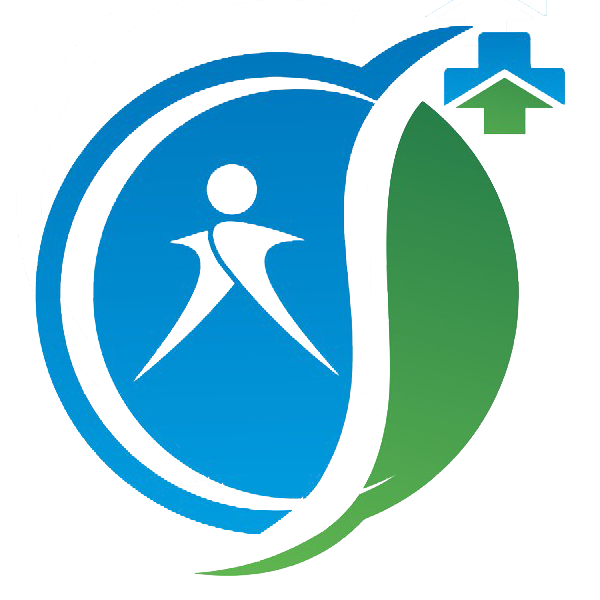Medication Administration Records (MARs): Ensuring Safe, Accurate and Consistent Medication Delivery

Medication is a crucial part of patient care, and it’s important to ensure that it’s administered accurately, consistently and safely. That’s where Medication Administration Records (MARs) come in. In this blog, we’ll explore the definition, purpose, and benefits of MARs, and how they play a critical role in ensuring accurate and consistent medication administration.
I. Introduction
A. Definition of Medication Administration Records (MARs) MARs are documents used to track and record the administration of medication to a patient. They include information such as the patient’s name, the medication name, the dosage, the administration route, and the time the medication was given. MARs are an essential tool for healthcare providers to ensure safe and accurate medication administration.
B. Purpose of MARs The purpose of MARs is to provide a clear and concise record of medication administration for each patient. This record helps healthcare providers monitor medication use and make informed decisions about medication changes, dosage adjustments, and potential side effects. MARs also help to prevent medication errors, which can be harmful to patients, by providing a complete and accurate record of all medications administered.
II. Traditional, Paper-based MARs
A. Description of traditional, paper-based MARs In traditional, paper-based systems, the MAR is typically a paper chart that is maintained in a patient’s medical file. This chart is used to record all medication administration, including the date, time, dosage, and route of administration.
B. Limitations of paper-based MARs While paper-based MARs have been in use for many years, they have several limitations. For one, they can be easily lost, damaged or destroyed, which can result in a loss of important medical information. They are also time-consuming to maintain and update, and they are often difficult to read and interpret due to handwritten notes and changes. In addition, paper-based MARs are prone to errors, and it can be challenging to ensure that all healthcare providers have access to the most current and accurate information.
III. Electronic Medication Administration Records (eMARs)
A. Overview of eMARs With the advent of electronic medical records, electronic Medication Administration Records (eMARs) have become increasingly popular and offer a more efficient and accurate way to track medication administration. eMARs are digital versions of traditional paper-based MARs and provide many benefits over paper-based systems.
B. Advantages of eMARs over paper-based MARs One of the main advantages of eMARs is their ability to eliminate errors and improve accuracy. eMARs are designed to be user-friendly, with drop-down menus and pre-populated fields, which reduce the risk of incorrect entries. eMARs also provide real-time access to medication information, so healthcare providers can quickly and easily access the most current information. Additionally, eMARs are easier to maintain and update, and they provide a secure and organized way to store and access important medical information.
C. Integration with Electronic Health Records (EHRs) Another advantage of eMARs is their integration with Electronic Health Records (EHRs). EHRs provide a comprehensive and centralized view of a patient’s medical history, including their medication history. By integrating eMARs with EHRs, healthcare providers can access all relevant information about a patient’s medication history, including dosage, frequency, and any adverse reactions, all in one place. This integration makes it easier for
healthcare providers to make informed decisions about medication changes and dosage adjustments, and it also helps to prevent medication errors.
IV. Importance of Accurate and Consistent Medication Administration
A. Risks associated with incorrect medication administration Incorrect medication administration can have serious and potentially life-threatening consequences. Medication errors can occur in many different ways, including incorrect dosages, incorrect routes of administration, or giving the wrong medication altogether. These errors can lead to serious side effects, drug interactions, and other adverse reactions, which can be harmful to the patient.
B. Role of MARs in ensuring accurate and consistent medication administration MARs play a critical role in ensuring accurate and consistent medication administration. By providing a complete and accurate record of all medications administered, MARs help to prevent medication errors and ensure that patients receive the correct medication, in the correct dosage, and at the correct time. They also help healthcare providers to monitor medication use and make informed decisions about medication changes and dosage adjustments.
V. Conclusion
A. Summary of the importance of MARs in medication administration In conclusion, Medication Administration Records (MARs) play a crucial role in ensuring safe, accurate, and consistent medication delivery. Whether paper-based or electronic, MARs provide a clear and concise record of medication administration for each patient and help healthcare providers to monitor medication use, prevent medication errors, and make informed decisions about medication changes and dosage adjustments.
B. Discussion of the benefits of electronic medication administration records (eMARs) Electronic Medication Administration Records (eMARs) offer several benefits over traditional, paper-based systems, including improved accuracy, real-time access to information, easier maintenance and updating, and integration with Electronic Health Records (EHRs). The use of eMARs is becoming increasingly popular, and they are expected to play an even more important role in the future of healthcare, as technology continues to evolve and improve.
In conclusion, the use of MARs, whether paper-based or electronic, is essential in ensuring safe, accurate, and consistent medication administration. By providing a clear and concise record of medication administration, MARs help healthcare providers to prevent medication errors, monitor medication use and make informed decisions about medication changes and dosage adjustments. Additional Resources:
Start the journey to safer and more accurate medication administration. Upgrade to eMARs today!
Additional Resources
-
NHS England: https://www.england.nhs.uk/ The National Health Service in England provides information on medication administration and safety, including guidelines and best practices for MARs.
-
National Institute for Health and Care Excellence (NICE): https://www.nice.org.uk/ NICE provides guidelines and quality standards for healthcare, including recommendations for the use of electronic systems, such as eMARs, in medication administration.
-
Medicines and Healthcare products Regulatory Agency (MHRA): https://www.gov.uk/government/organisations/medicines-and-healthcare-products-regulatory-agency The MHRA is responsible for regulating medical devices and pharmaceuticals in the UK, including eMAR systems. They provide information on the regulation of these systems and the standards they must meet.
-
Royal Pharmaceutical Society (RPS): https://www.rpharms.com/ The RPS is the professional body for pharmacists in the UK and provides guidance and standards for medication administration and safety, including the use of MARs.
-
Health and Safety Executive (HSE): https://www.hse.gov.uk/ The HSE is responsible for health and safety in the workplace in the UK, including healthcare settings. They provide information on the safe use of medical equipment, including eMAR systems.
-
Care Quality Commission (CQC): The CQC is the independent regulator of health and social care in England. They have published guidelines and standards for medication management, which can be found on their website: https://www.cqc.org.uk/guidance-providers/medicines-management
-
The King's Fund is a health charity that provides information, research and analysis on the health and care system in England. They have published various reports and resources on medication management, which can be found on their website: https://www.kingsfund.org.uk/search/site/medication%20administration%20records"
Let's chat.
